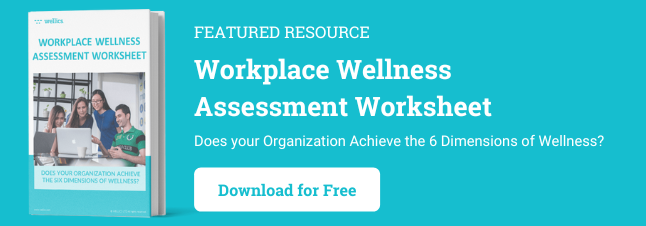Faye is a Clinical Psychologist (MA) and the Chief Science Officer at Wellics. She…
I’ve been trying to write about how to get rid of procrastination for the past ten days. I know there is a deadline, I have all sorts of post-it on my screen, and here I am working furiously to complete the task before the deadline.
How did this happen? I’ve helped clients give their own “procrastination battle” and was 100% certain that I would submit this blog article on time!
I guess I belong to 95% of people who procrastinate. Although procrastination is not a mental health problem per se, it can impact your mental well-being daily. It affects your productivity, academic performance, and personal relationships.
How do I stop being lazy and procrastinating?
Let’s clear some things out. If you are lazy, you are not willing to act on something; laziness coincides with some degree of apathy. Overcoming laziness involves finding your internal motivation and accepting the burden of responsibility.
Procrastination involves action! Think of a time when you realize that you are procrastinating. You are caught in the act of doing something else. Either checking your social media or getting “too” prepared- you are doing something (if you want to get a clearer idea of where you stand, take this short quiz).
Your biology does not help either. Your limbic system (you’re probably more aware of the term “amygdala”) tells you to fly away from an unpleasant situation (i.e., I wish I didn’t have to make that report today). This is a threat; either you find the writing tedious or stressful, your amygdala fuels your avoidance behavior to protect you from unpleasant emotions.
And then, your prefrontal cortex comes into play: “Ignore those negative feelings, don’t listen to your amygdala, and proceed with the task; you will get rewarded. I promise!”. As adults, we have to listen to our prefrontal cortex with all the decision-making processes and personality traits that come with it. But, it is so fun to give space to our “childish” limbic system.
Watch this 1'03" video to understand the biology behind procrastination.
If you didn’t postpone reading, I’ve gathered 18 tips on how to stop procrastination and laziness. Choose wisely!
How to fight procrastination
1. Forgive yourself: A significant trigger for procrastination is guilt. If you feel bad for not starting earlier, your pre-frontal cortex goes offline: your resources shut down, and you can not self-regulate. You are more likely to procrastinate to feel better by turning on your TV, checking your social media, or making your grocery list.
2. Try morning meditation: Even 5 minutes in the morning can help you regain focus and self-acceptance.
3. Employ positive affirmations to enhance forgiveness: “This situation is difficult, and I have the abilities to deal with it,” “I can allow myself not to be perfect,” “My self-worth is not determined by the amount of work I do.”
4. Keep it tidy: Take a look at your workspace. Is it messy or clean and organized? Your working conditions can significantly influence your focus and productivity. Personal sharing: I have no family/friends’ photos, personal objects, etc. I try to keep it to the minimum. My workspace signals work and nothing else.
5. Identify and get rid of distractions: Spend a day making a list of the type of distractions that get you off track and the timing around them. Once you find them, control them! Hide your phone, too many pencils, funny objects, and others that can divert you, and keep only what you need to get things done.
6. Have a designated workstation: Many employees had to shift to remote working and adapt during the pandemic. Having a consistent workstation is critical in controlling procrastination. Your office space is dedicated to working only.
7. Try the Pomodoro technique: Managing tasks and time combined can help you control your urge to postpone. The Pomodoro technique allows you to stay focused and handle interruptions. Set your timer to 25 mins to complete a task, and then take a 5min break. An effective way to apply the technique is to break down your tasks into pomodoros (i.e., write this blog article = 8 pomodoros, check my email = 1 pomodoro). Experiment with the time length, and don’t forget to get away from your screen during the break!
8. Try the ten-minute trick: If 25 mins sound a lot (of severe procrastinators), then you can try the ten-minute trick. Commit to working on the task for 10 min (really focused) and see what happens.
9. Prioritize: Every morning, I list the tasks I need to complete by the end of the day. This is based on what needs to be delivered or maybe something that I would like to get off my chest. Instead of having a vague idea of what needs to be done, make a list so that you can then plan your time.
10. Avoid multitasking: You can not write a blog, watch a video, listen to a podcast, complete a report and respond to e-mails all in one day. Your brain is overloaded with information, and guess what; it does not feel good. You end up feeling tired, overwhelmed, and disengaged.
11. Find your “prime time”: Sometimes, it does not matter how challenging the task is or how confident you feel about it. It is about your energy levels. I am a morning person, so I usually schedule the most demanding tasks early in the day and leave calls, zoom meetings, etc. What time of the day works best for you? Plan the most challenging tasks around that time. When do you feel that you start getting tired? Consider checking e-mails or doing some bureaucratic work by then.
12. Re-fuel: Drink water, get a good night’s rest, and if all that fails, don’t take a break by focusing on something. Yes, scrolling on your social media requires energy and focus. You are not relaxing; you keep on receiving the information you don’t need at that point.
13. Turn-off notifications (on all devices!): Nothing should interrupt your focus (that goes for work apps). If that sounds scary, you can enable notifications for specific contacts. Remember that notices aim to keep you “hooked” with an app and disrupt your focus.
14. Make going social difficult: Don’t just close your Facebook or Instagram tab. Log out, so you will have to follow the (tedious) step of logging your info whenever you feel tempted to go online.
15. Be mindful: If you feel tempted to check on your phone or your social media, take a pause and practice mindfulness: “What is happening right now?”, “Why do I need to check on my Facebook?”. Give it some time, and soon return to your work.
16. Plan your work: Planning is the silent killer of procrastination. Try spending 15 minutes planning your work and free time instead of rushing into things. Whether a bullet journal or a digital task planner, keep it where you can see it.
17. Unplug and play: Yes! It is essential to plan your fun time! Anticipation is a powerful mechanism to counterbalance anxiety stemming from workload etc. I usually reserve 1.5 hours at night to spend on things that I like; that keeps me going when I start feeling tired.
18. Reward yourself: You made it to the final tip! Reward yourself for whatever you have accomplished. Whether you tried the Pomodoro technique or logged off from social media, or completed that task you were avoiding…you did it! Embrace yourself with something you like.
Overcome procrastination and laziness
Try to remember that procrastination does not change overnight. We all have habits that make up our comfort zone. So, if you find yourself hooked on a pattern, go back to the list and practice the first tip: forgive yourself.
Choose your weapons wisely. I would note those tips that appear more appealing to where I stand now and start practicing. It is important not to “punish” yourself for failing from time to time. Take baby steps, and you will be surprised by the result (sooner than you think!).
PS: To be honest, I am relieved that I did not postpone this blog further!
Originally published March 29, 2022 - 8:12 AM, updated September 3, 2024
Sources
https://www.apa.org/gradpsych/2010/01/procrastination
https://psychologytoday.tests.psychtests.com/bin/transfer
https://www.makeuseof.com/open-source-pomodoro-apps-productivity/









